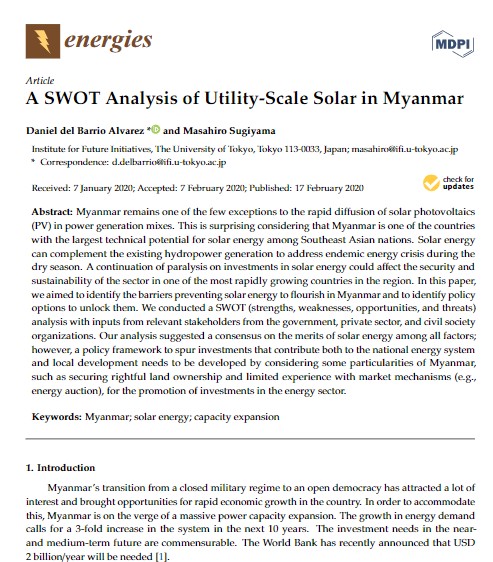
Keyword(s)
Author(s)
(a) del Barrio Alvarez; (b) Daniel; (c) Sugiyama; (d) Masahiro
Publisher
Published Date
Access
DOI
University of Tokyo
Myanmar remains one of the few exceptions to the rapid diffusion of solar photovoltaics (PV) in power generation mixes. This is surprising considering that Myanmar is one of the countries with the largest technical potential for solar energy among Southeast Asian nations. Solar energy can complement the existing hydropower generation to address endemic energy crisis during the dry season. A continuation of paralysis on investments in solar energy could affect the security and sustainability of the sector in one of the most rapidly growing countries in the region. In this paper, we aimed to identify the barriers preventing solar energy to flourish in Myanmar and to identify policy options to unlock them. We conducted a SWOT (strengths, weaknesses, opportunities, and threats) analysis with inputs from relevant stakeholders from the government, private sector, and civil society organizations. Our analysis suggested a consensus on the merits of solar energy among all factors; however, a policy framework to spur investments that contribute both to the national energy system and local development needs to be developed by considering some particularities of Myanmar, such as securing rightful land ownership and limited experience with market mechanisms (e.g., energy auction), for the promotion of investments in the energy sector.
Cite
del Barrio Alvarez, Daniel, and Masahiro Sugiyama. 2020. “A SWOT Analysis of Utility-Scale Solar in Myanmar” Energies 13, no. 4: 884. https://doi.org/10.3390/en13040884